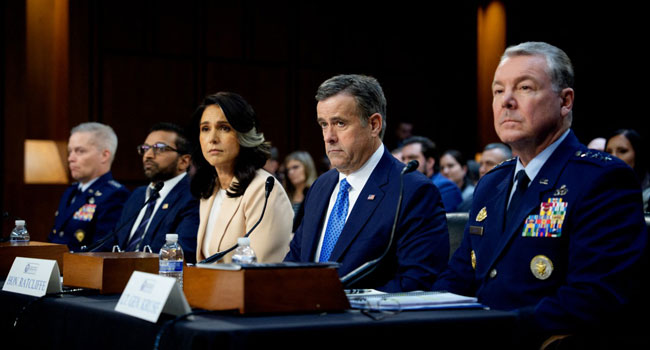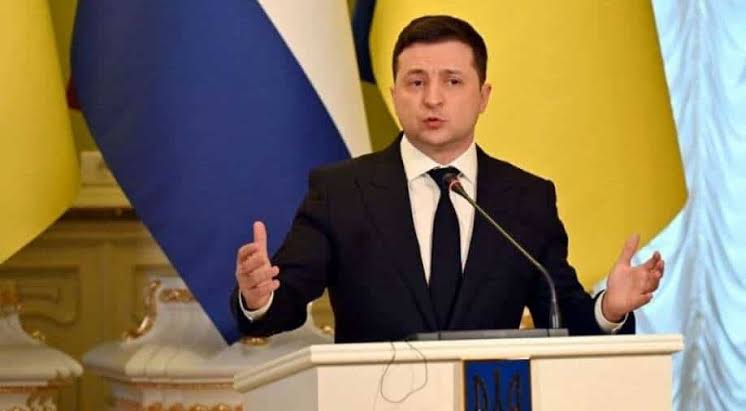News
US Intelligence Chiefs Face Senate Intense Questioning Over Yemen Strike Chat Leak

- U.S. intelligence officials faced Senate scrutiny over a leaked Yemen airstrike chat.
- Journalist Jeffrey Goldberg was mistakenly added and saw military plans before attacks.
- Senators condemned the breach, calling it reckless and demanding top officials resign.
Top U.S. intelligence officials faced intense questioning from Democratic senators on Tuesday over a major security breach that saw a journalist inadvertently included in a private chat discussing airstrikes in Yemen.
The Senate Intelligence Committee hearing, originally focused on national security threats, turned into a heated interrogation as senators pressed officials—two of whom were reportedly in the chat—on how military plans ended up on Signal, a publicly available encrypted messaging app.
EDITOR’S PICKS
- BREAKING: Ibok-Ete Ibas Appoints Professor Worika As Rivers SSG
- FG Calls for Alignment of Education Projects with National Priorities
- Tinubu Launches Nigerian Youth Academy to Equip Young Population
EKO HOT BLOG reports that Democratic Vice Chair Mark Warner confronted Director of National Intelligence Tulsi Gabbard, demanding explanations on how such sensitive discussions occurred in an unofficial chat. Gabbard repeatedly denied that classified material was shared but refused to provide further details or confirm her participation in the group. Warner urged her to disclose the chat’s content if no classified information had been compromised.
The controversy erupted after Jeffrey Goldberg, editor-in-chief of The Atlantic, revealed on Monday that he had been added to the chat and was given detailed plans for airstrikes on Houthi rebel targets in Yemen—hours before the attacks took place. Goldberg, initially skeptical, said he realized the chat was real when the strikes occurred as scheduled. Concerned about security risks, he left the group and chose not to disclose all the messages to avoid endangering U.S. forces.
The group chat reportedly included Vice President JD Vance, Defense Secretary Pete Hegseth, and National Security Advisor Mike Waltz. The White House later confirmed the chat’s authenticity but maintained that no classified intelligence had been shared.
Unlike Gabbard, CIA Director John Ratcliffe admitted to being in the chat and defended the use of Signal for the discussion. However, Warner was unconvinced, calling the incident “sloppy, careless, and incompetent,” and likening it to behavior that would get a military or intelligence officer fired.
Democratic Senator Ron Wyden went further, demanding the resignations of Waltz and Hegseth, citing their roles in the breach—Waltz for mistakenly adding Goldberg and Hegseth for allegedly sharing strike plans in the chat.
The controversy has intensified concerns over how top Trump administration officials handle sensitive intelligence, raising fresh scrutiny over security protocols in government communications.
FURTHER READING
- PDP Considers Coalition, Sets Conditions For Atiku, Peter Obi, El-Rufai
- Yellow Aboki, Close Ally of Late Bandit Kingpin Bamamu, Eliminated in Zamfara
- ‘We Inherited a Mess’ – Ratcliffe Criticizes Man United Players
Watch Our Video Of The Week
Advertise or Publish a Story on EkoHot Blog:
Kindly contact us at ekohotblog@gmail.com. Breaking stories should be sent to the above email and substantiated with pictorial evidence.
Citizen journalists will receive a token as data incentive.
Call or Whatsapp: 0803 561 7233, 0703 414 5611

















